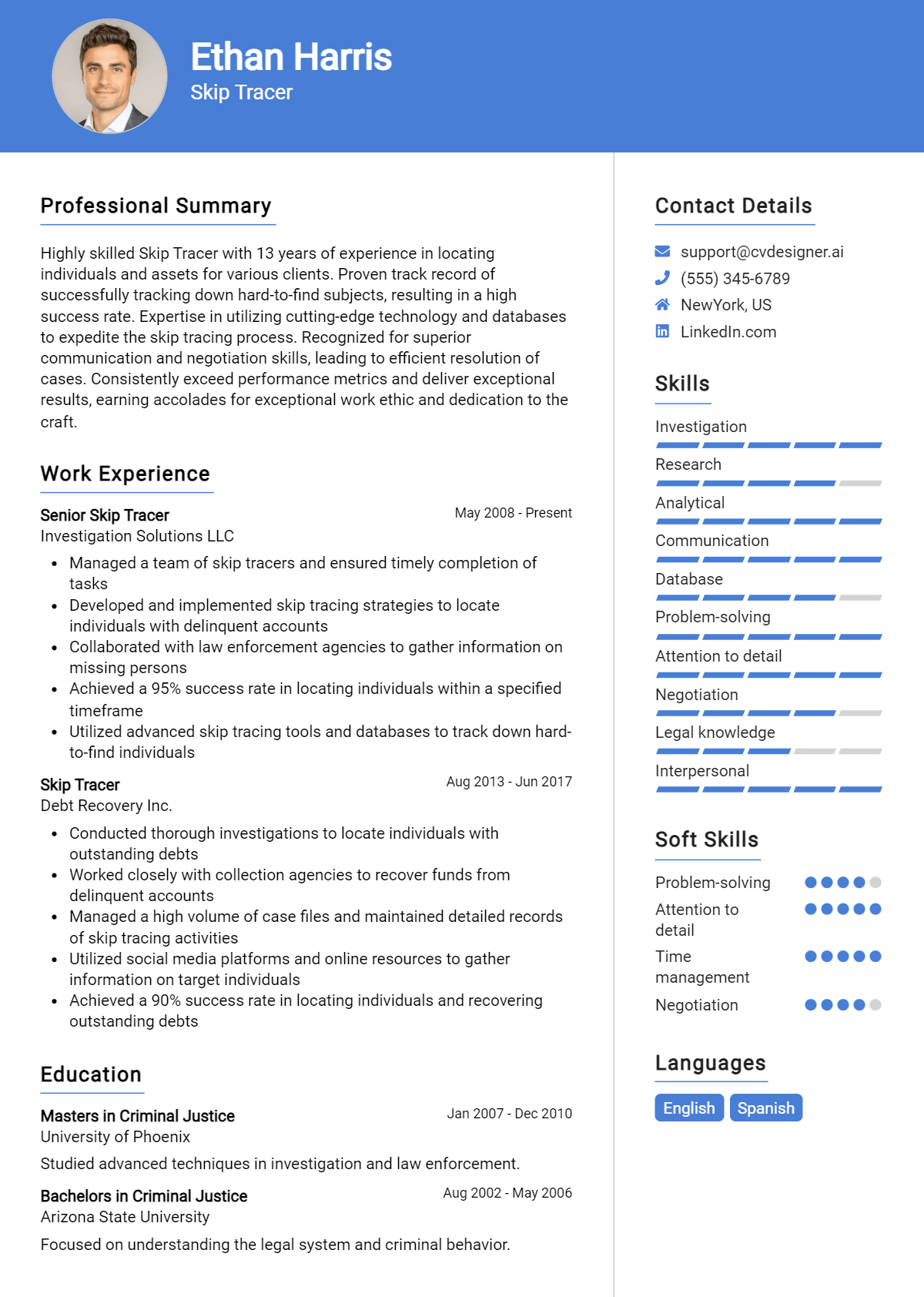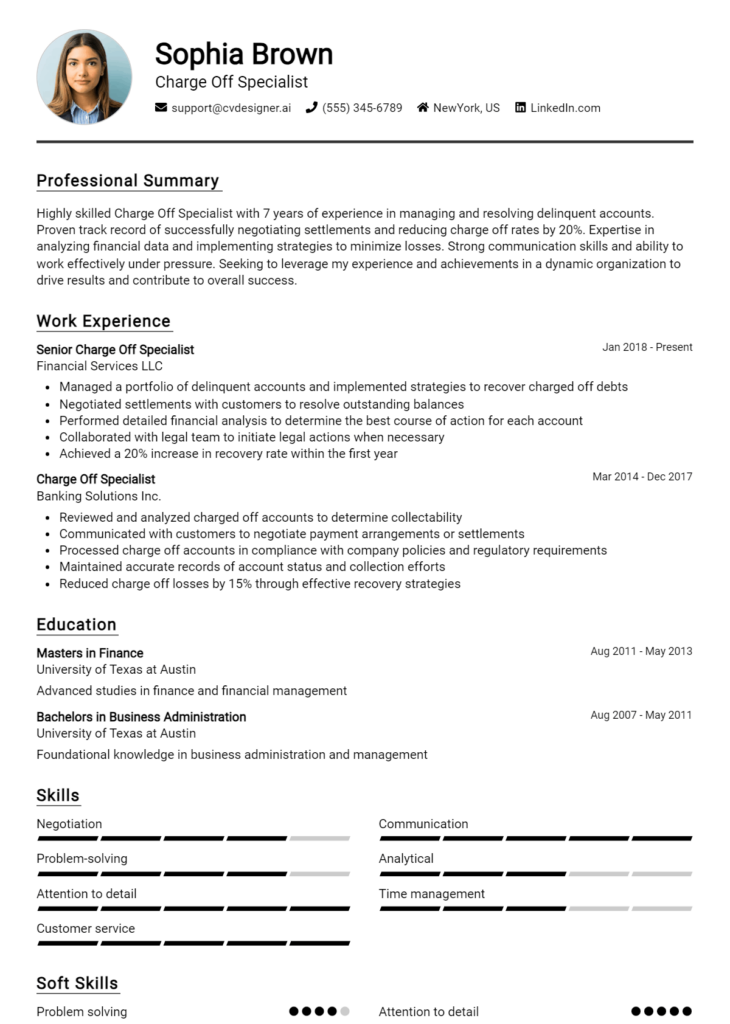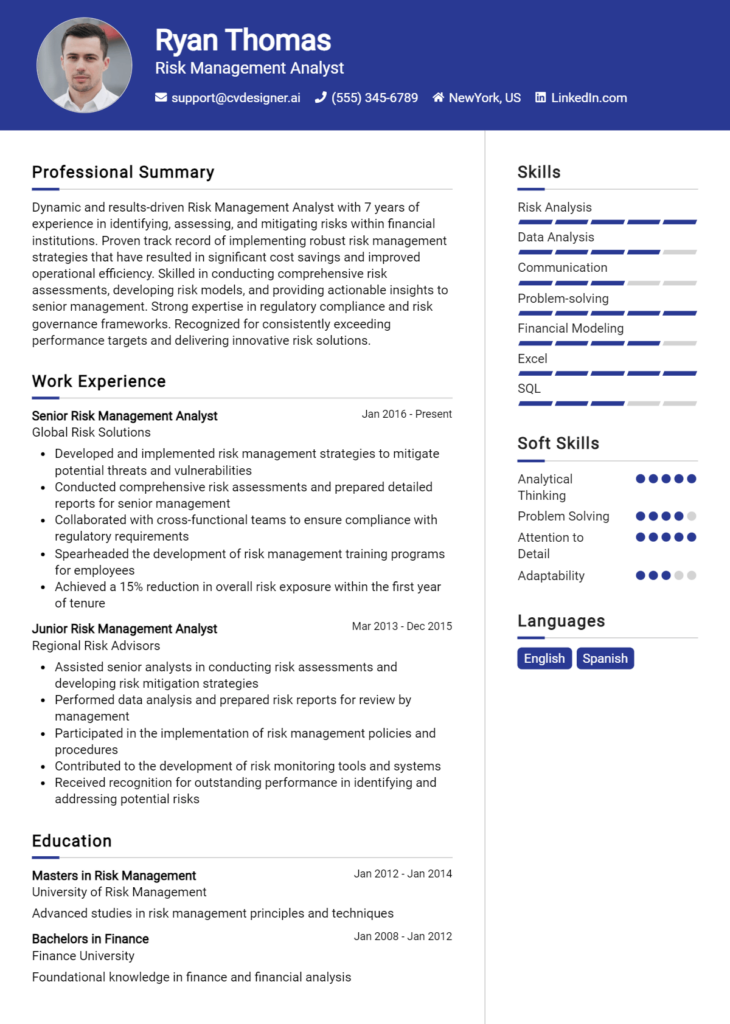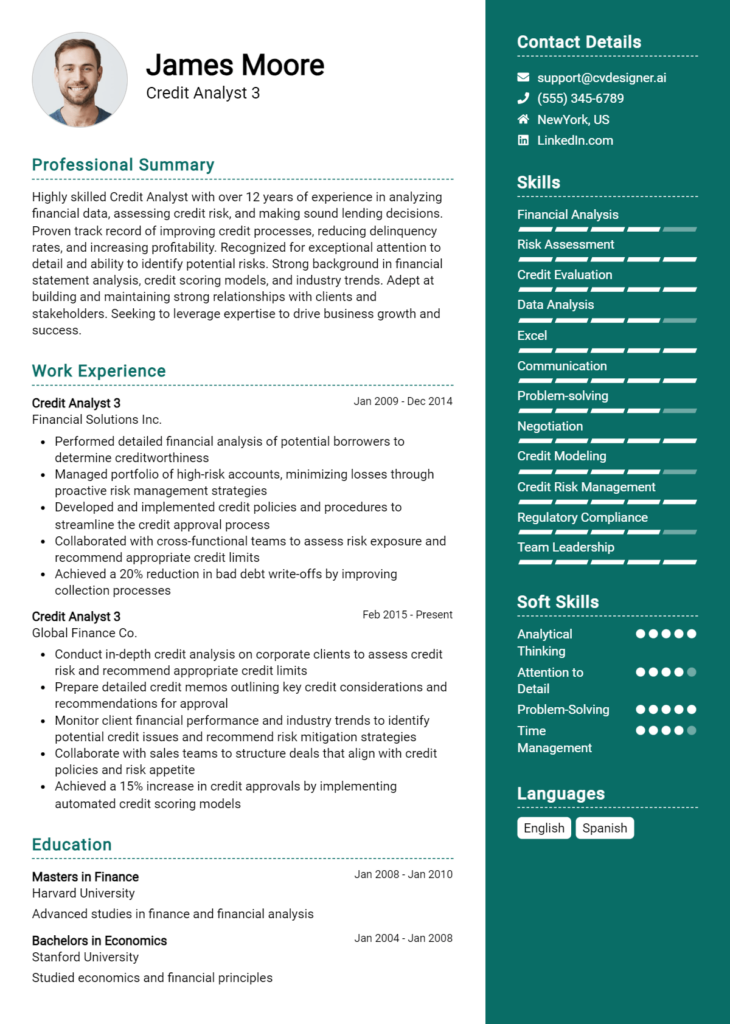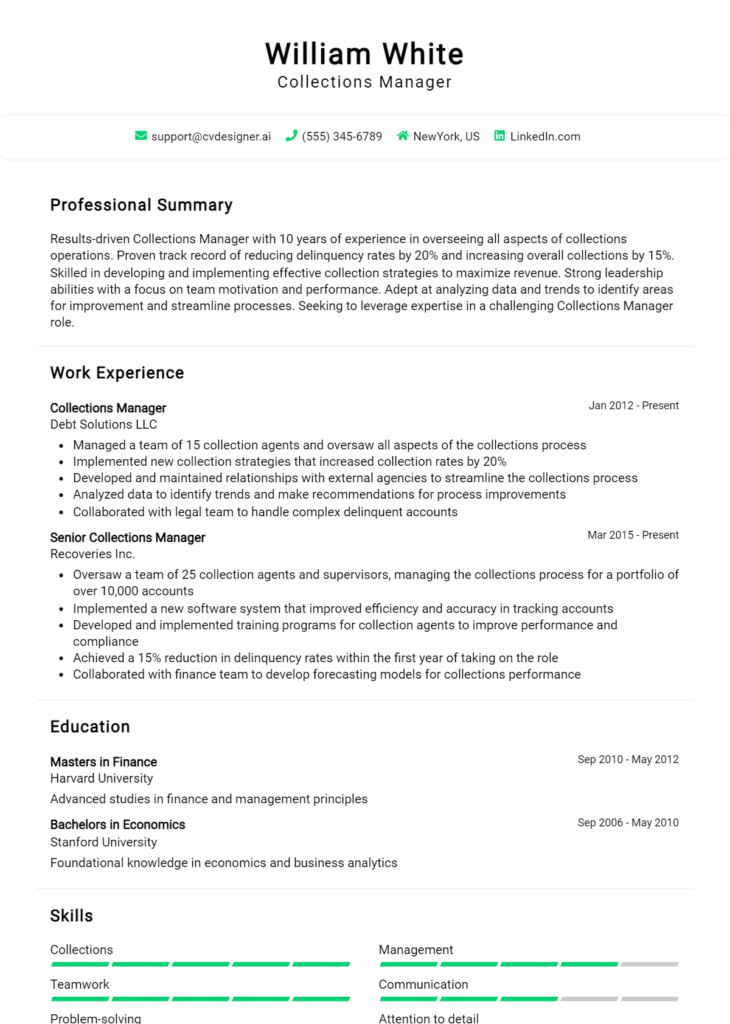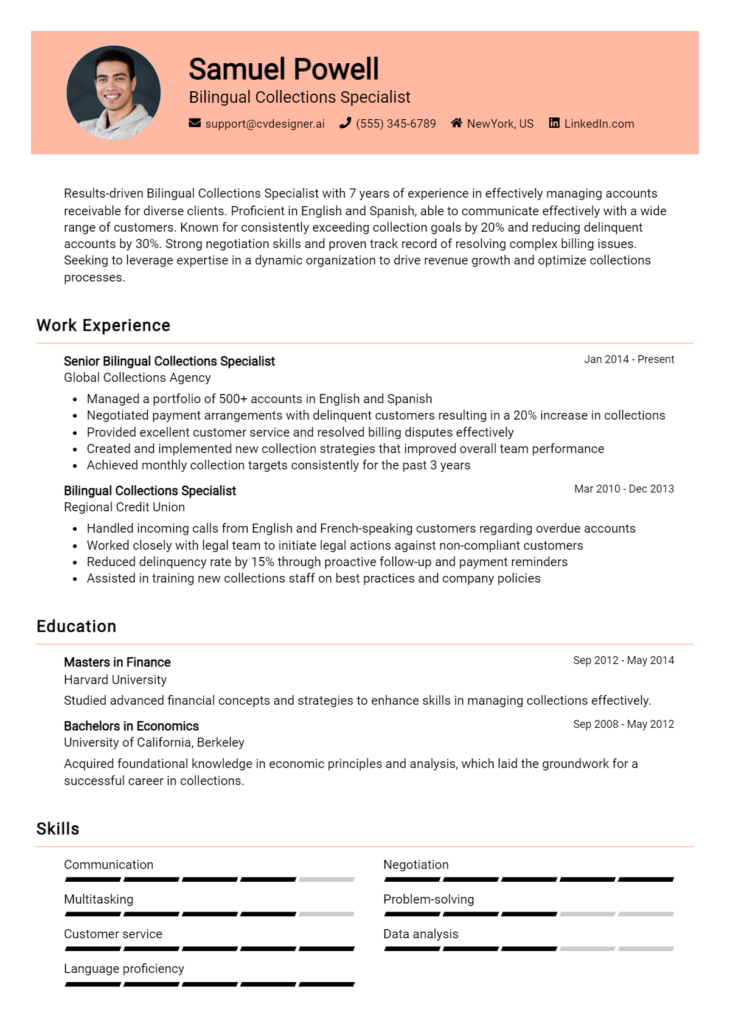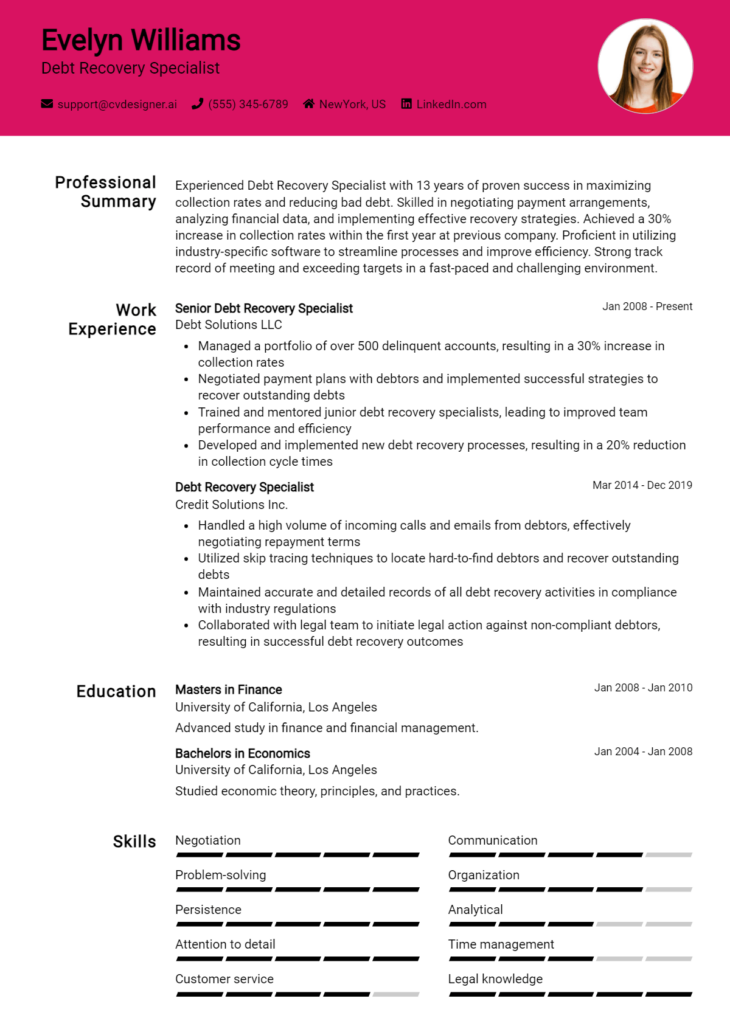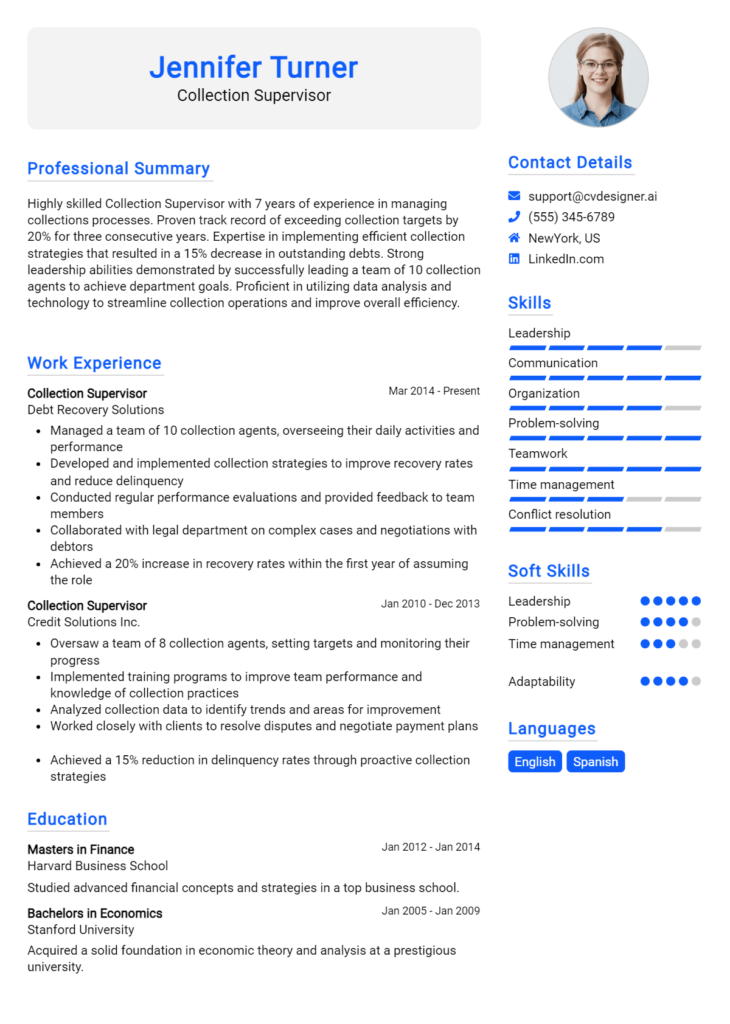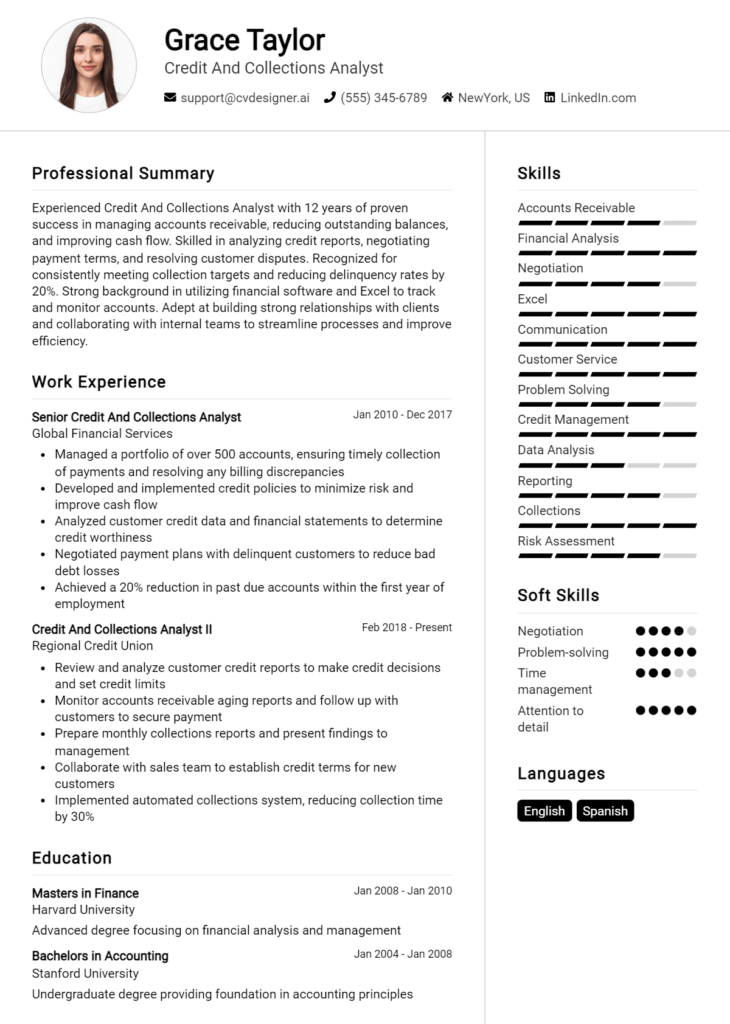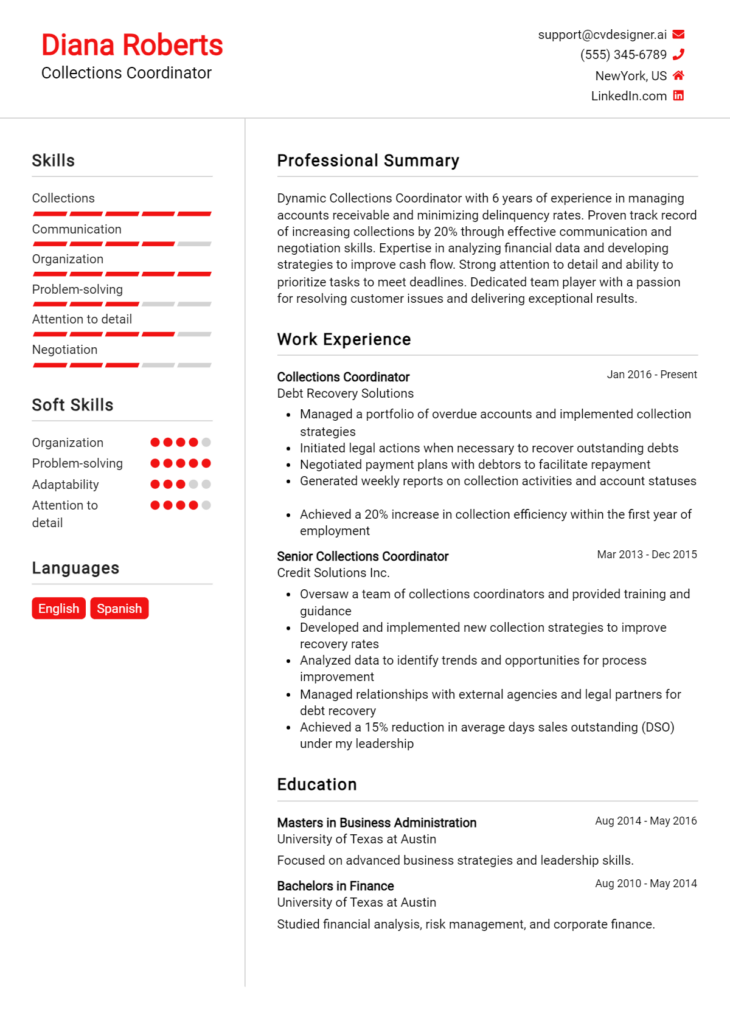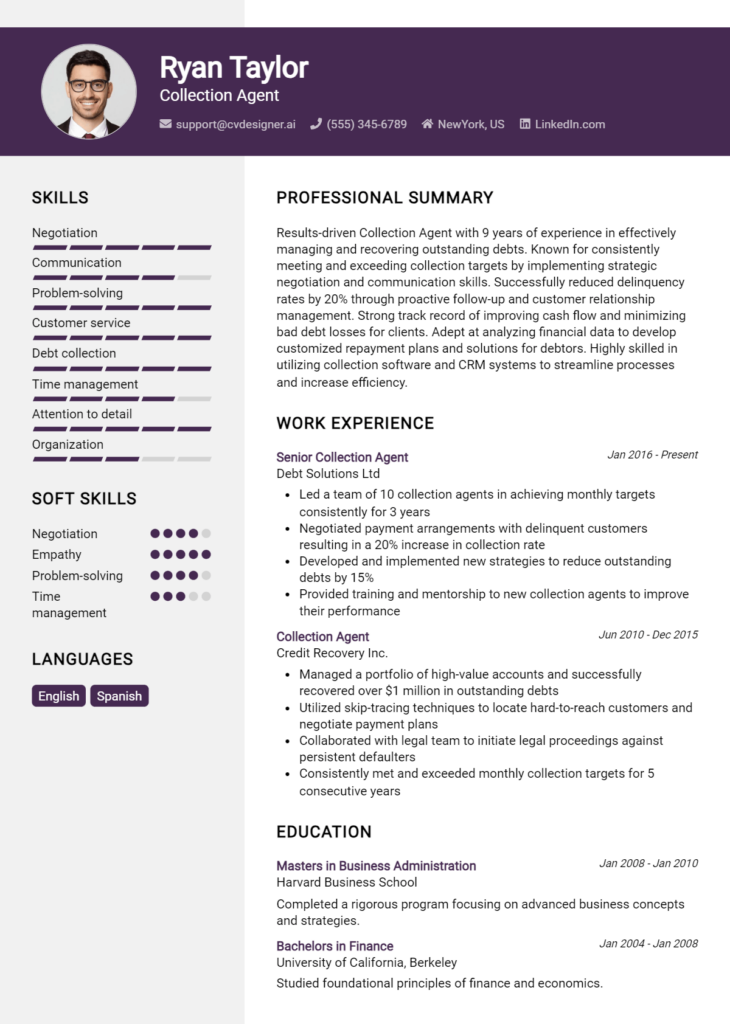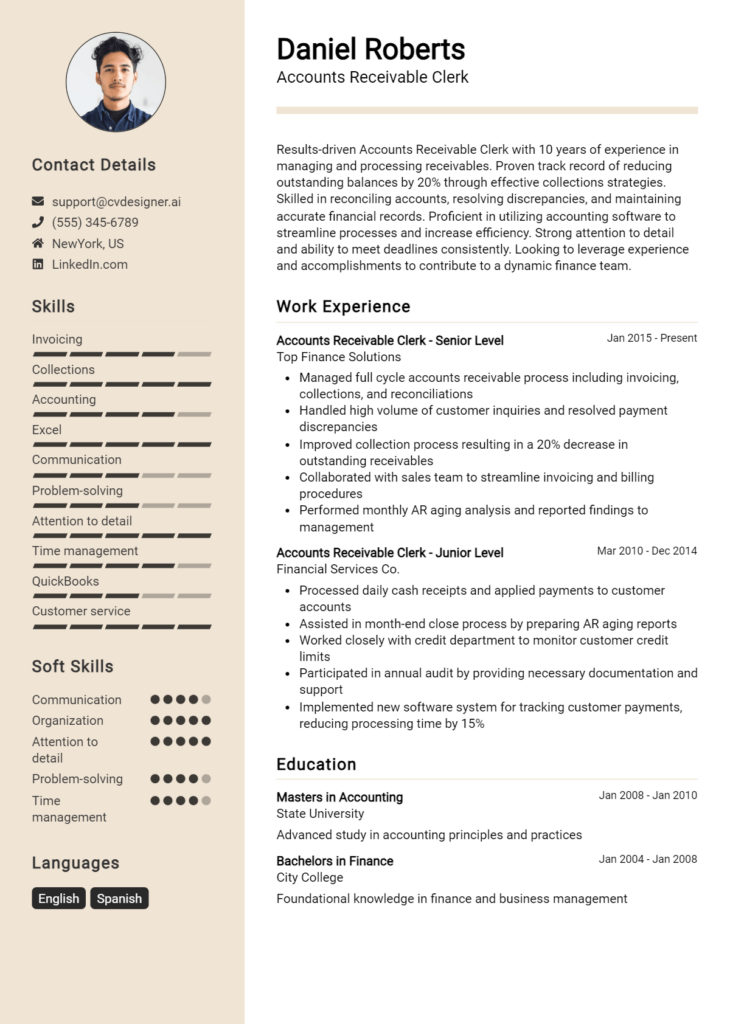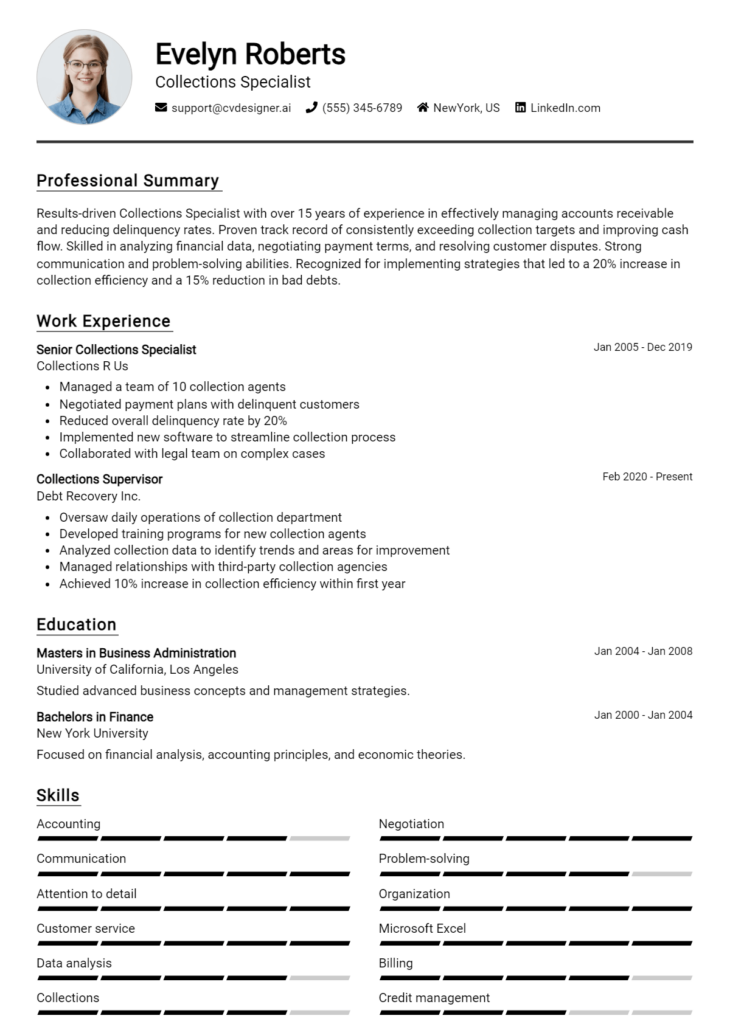Skip Tracer Core Responsibilities
A Skip Tracer plays a crucial role in locating individuals who have skipped out on financial obligations or legal responsibilities. This position requires strong technical skills in data analysis and research, along with operational expertise in navigating various databases and public records. Problem-solving abilities are essential for overcoming challenges in locating individuals. By effectively collaborating with other departments, such as collections and legal, a Skip Tracer contributes significantly to the organization's goals. A well-structured resume highlighting these competencies can enhance job prospects.
Common Responsibilities Listed on Skip Tracer Resume
- Conduct thorough investigations to locate individuals using various databases.
- Analyze public records, credit reports, and social media for leads.
- Collaborate with legal and collections teams to support case strategies.
- Maintain accurate records of all skip tracing activities and findings.
- Utilize advanced technology and software tools for data mining.
- Develop and implement effective tracing techniques and methods.
- Communicate findings clearly to management and other departments.
- Stay updated on industry regulations and best practices in skip tracing.
- Respond to inquiries and provide assistance in locating debtors.
- Prepare detailed reports on tracing outcomes and methodologies.
- Train junior staff on skip tracing processes and tools.
High-Level Resume Tips for Skip Tracer Professionals
A well-crafted resume is essential for Skip Tracer professionals, serving as the first impression a candidate makes on potential employers. In the competitive field of skip tracing, your resume needs to effectively showcase your skills, achievements, and industry knowledge. It should not only highlight your qualifications but also reflect your understanding of the unique demands of the role. This guide will provide practical and actionable resume tips specifically tailored for Skip Tracer professionals, helping you to stand out in a crowded job market.
Top Resume Tips for Skip Tracer Professionals
- Tailor your resume to match the job description, emphasizing relevant keywords and phrases that align with the employer's needs.
- Highlight your relevant experience in skip tracing, including any specific cases or types of investigations you have handled.
- Quantify your achievements by including metrics, such as the percentage of successful skips resolved or the average time taken to locate subjects.
- Showcase your proficiency with industry-specific software and tools that enhance your skip tracing capabilities.
- Include any certifications or training related to skip tracing, investigations, or related fields to establish credibility.
- Demonstrate your problem-solving skills by detailing challenges you have faced in previous roles and how you overcame them.
- Utilize a clean and professional layout that enhances readability and allows important information to stand out.
- Incorporate action verbs to describe your responsibilities and accomplishments, making your contributions clear and impactful.
- Provide references or testimonials from previous employers or clients who can vouch for your skills and work ethic.
By implementing these tips, you can significantly increase your chances of landing a job in the Skip Tracer field. A well-organized and strategically crafted resume will not only showcase your qualifications but also demonstrate your commitment and suitability for the role, making you a more attractive candidate to potential employers.
Why Resume Headlines & Titles are Important for Skip Tracer
In the competitive field of skip tracing, having a well-crafted resume headline or title is crucial for making a strong first impression. A compelling headline can immediately catch the attention of hiring managers, encapsulating a candidate's key qualifications in a single, impactful phrase. This brief but powerful statement serves as a summary of the applicant's strengths, making it easier for employers to quickly gauge their fit for the role. A good headline should be concise, relevant, and tailored directly to the job being applied for, ensuring that it resonates with the specific needs of the hiring organization.
Best Practices for Crafting Resume Headlines for Skip Tracer
- Keep it concise: Aim for one impactful sentence or phrase.
- Be role-specific: Incorporate industry-related keywords relevant to skip tracing.
- Highlight key strengths: Focus on skills, experiences, or certifications that set you apart.
- Use action verbs: Start with strong action words to convey confidence and proactivity.
- Tailor for the job: Customize your headline for each application to reflect the job description.
- Avoid jargon: Use clear language that can be easily understood by hiring managers.
- Showcase achievements: If possible, incorporate a significant accomplishment that demonstrates your capabilities.
- Maintain professionalism: Ensure the tone aligns with the industry standards and expectations.
Example Resume Headlines for Skip Tracer
Strong Resume Headlines
"Results-Driven Skip Tracer with 5+ Years of Experience in Asset Recovery"
"Expert Skip Tracer Specializing in Difficult-to-Locate Individuals and Advanced Research Techniques"
"Proven Track Record in Successfully Locating High-Risk Debtors Using Innovative Strategies"
Weak Resume Headlines
"Looking for a Job"
"Experienced Professional"
Strong resume headlines are effective because they clearly communicate the candidate's strengths and qualifications, immediately aligning them with the needs of the employer. They are specific, action-oriented, and tailored to the skip tracing role, making the candidate stand out. In contrast, weak headlines fail to impress due to their vagueness and lack of relevance; they do not provide any meaningful information about the applicant's skills or suitability for the position, leaving hiring managers with no reason to take a closer look.
Writing an Exceptional Skip Tracer Resume Summary
A well-crafted resume summary is crucial for a Skip Tracer, as it serves as the first impression for hiring managers. This brief yet impactful section quickly captures attention by highlighting key skills, relevant experience, and significant accomplishments that align with the job role. A concise summary tailored to the specific position not only showcases the candidate's qualifications but also demonstrates their understanding of the industry's demands, making it more likely to secure an interview.
Best Practices for Writing a Skip Tracer Resume Summary
- Quantify Achievements: Use numbers to demonstrate your success, such as the percentage of successful skips or the number of cases resolved.
- Focus on Relevant Skills: Highlight key skills that are essential for a Skip Tracer, such as investigative techniques, database proficiency, and communication skills.
- Tailor to the Job Description: Customize your summary to include keywords and phrases from the job listing to show you are a perfect fit.
- Keep It Concise: Aim for 2-4 sentences that convey your value clearly and quickly.
- Use Action-Oriented Language: Start sentences with strong action verbs to convey your proactive approach.
- Showcase Industry Knowledge: Demonstrate your understanding of the skip tracing field and any relevant tools or software.
- Highlight Soft Skills: Include interpersonal skills like problem-solving and negotiation that are vital in skip tracing.
- Proofread: Ensure there are no spelling or grammatical errors to maintain professionalism.
Example Skip Tracer Resume Summaries
Strong Resume Summaries
Detail-oriented Skip Tracer with over 5 years of experience successfully locating over 300 hard-to-find individuals, achieving a 90% success rate in case resolution. Proficient in using advanced skip tracing software and databases to uncover vital information.
Results-driven investigator with a proven track record of recovering assets amounting to $2 million through strategic skip tracing methods. Skilled in leveraging social media platforms and public records to enhance locating efforts.
Dedicated Skip Tracer with a background in law enforcement and investigative research, recognized for reducing skip tracing time by 40% through innovative techniques and effective collaboration with creditors.
Weak Resume Summaries
Experienced professional looking for a job in skip tracing.
I have worked in various fields and have some skills that may relate to skip tracing.
The strong resume summaries effectively highlight specific achievements, skills, and relevant experiences that directly relate to the Skip Tracer role, showcasing quantifiable results and a clear understanding of the job requirements. In contrast, the weak summaries are vague and generic, failing to provide any substantial information that would capture a hiring manager's interest or demonstrate the candidate's qualifications for the position.
Work Experience Section for Skip Tracer Resume
The work experience section of a Skip Tracer resume is critical in demonstrating the candidate's technical skills and hands-on experience in the field. This section not only highlights the applicant's ability to manage teams effectively and deliver high-quality results, but it also provides concrete examples of their accomplishments. By quantifying achievements and aligning experiences with industry standards, candidates can showcase their value to potential employers, making it clear how their background can contribute to the success of the organization.
Best Practices for Skip Tracer Work Experience
- Use specific metrics to quantify achievements, such as percentage of cases resolved or time taken to locate subjects.
- Highlight technical skills related to tracing tools and software, demonstrating proficiency in industry-standard technologies.
- Include examples of collaboration with law enforcement or legal teams to strengthen credibility.
- Showcase leadership experience, particularly in managing teams or projects that resulted in successful outcomes.
- Tailor experience descriptions to align with job descriptions, emphasizing relevant skills and results.
- Focus on problem-solving abilities by detailing challenges faced and solutions implemented.
- Keep descriptions concise and impactful, using action verbs to convey achievements effectively.
- Incorporate continuing education or certifications that enhance your skills in skip tracing.
Example Work Experiences for Skip Tracer
Strong Experiences
- Successfully located over 500 missing persons within a 3-month timeframe, achieving a resolution rate of 90%.
- Led a team of 5 skip tracers in a project that reduced tracing time by 40% through the implementation of new software tools.
- Collaborated with local law enforcement to track down high-profile fugitives, resulting in a 30% increase in case closures.
- Developed and executed training for new staff, improving team efficiency and reducing onboarding time by 25%.
Weak Experiences
- Worked on various skip tracing tasks without significant outcomes or measurable results.
- Assisted in team efforts without specifying contributions or impact on projects.
- Participated in meetings related to skip tracing but did not detail specific achievements or responsibilities.
- Performed general duties in the skip tracing department without highlighting technical skills or tools used.
The examples listed as strong are considered effective because they clearly quantify achievements, demonstrate leadership, and highlight collaborative efforts that resulted in significant outcomes. In contrast, the weak experiences lack specificity and measurable results, failing to convey the candidate's impact or technical expertise in skip tracing. This distinction is crucial for potential employers assessing the candidate's qualifications and fit for the role.
Education and Certifications Section for Skip Tracer Resume
The education and certifications section of a Skip Tracer resume is crucial as it provides a snapshot of the candidate's academic background and demonstrates their commitment to professional development within the industry. This section not only showcases relevant degrees and coursework but also highlights industry-specific certifications that can enhance the candidate's credibility and align them with the job role. By including details about specialized training and continuous learning efforts, candidates can effectively convey their qualifications and readiness to tackle the demands of skip tracing. A well-structured education and certifications section can set a candidate apart in a competitive job market.
Best Practices for Skip Tracer Education and Certifications
- Include only relevant degrees, such as those in criminal justice, finance, or information technology.
- List industry-recognized certifications, such as Certified Skip Tracer (CST) or Certified Fraud Examiner (CFE).
- Provide specific coursework that is directly related to skip tracing, such as courses in investigative techniques or data analysis.
- Highlight any specialized training in tools or software commonly used in skip tracing.
- Keep the section concise but detailed enough to showcase your qualifications effectively.
- Use dates to indicate when degrees were obtained and certifications were earned, demonstrating your commitment to ongoing education.
- Consider including any relevant workshops, seminars, or online courses that enhance your skills.
- Tailor this section for each job application to align with the specific requirements of the position.
Example Education and Certifications for Skip Tracer
Strong Examples
- Bachelor of Science in Criminal Justice, ABC University, 2020
- Certified Skip Tracer (CST), National Association of Professional Process Servers, 2021
- Coursework in Data Analysis and Investigative Techniques, XYZ College, 2019
- Advanced Training in Skip Tracing Software, Online Academy, 2022
Weak Examples
- Associate Degree in General Studies, DEF Community College, 2018
- Certification in Microsoft Office Applications, 2017
- High School Diploma, GHI High School, 2016
- Outdated certification in Basic Computer Skills, 2015
The examples listed as strong are considered relevant because they directly pertain to the skills and knowledge needed in skip tracing, showcasing a clear alignment with the job role. They highlight a focused educational pathway and essential certifications that enhance the candidate's qualifications. Conversely, the weak examples display a lack of relevance to the skip tracing industry and do not reflect the specialized skills required for success in this role, thus diminishing the candidate's credibility.
Top Skills & Keywords for Skip Tracer Resume
As a Skip Tracer, possessing a robust set of skills is essential for successfully locating individuals who have skipped out on their obligations. A well-crafted resume that highlights both hard and soft skills can make a significant difference in securing a position in this competitive field. Employers look for candidates who not only have the technical know-how but also possess the interpersonal abilities necessary for effective communication and problem-solving. By emphasizing your skills, you demonstrate to potential employers that you are well-equipped to handle the challenges of this role and can contribute positively to their organization.
Top Hard & Soft Skills for Skip Tracer
Soft Skills
- Strong communication skills
- Problem-solving abilities
- Attention to detail
- Analytical thinking
- Patience and perseverance
- Empathy and understanding
- Negotiation skills
- Time management
- Critical thinking
- Adaptability
Hard Skills
- Proficiency in skip tracing software
- Data analysis and interpretation
- Internet research techniques
- Knowledge of public records
- Familiarity with legal regulations
- Geographic information systems (GIS) skills
- Experience with databases and CRM systems
- Knowledge of social media platforms
- Proficient in Microsoft Office Suite
- Understanding of financial records and credit reports
By integrating these skills into your resume, along with a clear presentation of your work experience, you can effectively showcase your qualifications and increase your chances of landing a Skip Tracer position.
Common Mistakes to Avoid in a Skip Tracer Resume
When applying for a position as a skip tracer, it’s crucial to present a polished and professional resume that effectively highlights your skills and experience. However, many candidates make common mistakes that can hinder their chances of landing an interview. Understanding these pitfalls can help you craft a more compelling resume that stands out to potential employers. Below are some frequent errors to avoid when preparing your skip tracer resume:
Lack of Relevant Keywords: Failing to include industry-specific terminology can lead to your resume being overlooked by applicant tracking systems (ATS). Ensure you incorporate keywords that align with the job description.
Vague Job Descriptions: Providing general descriptions of past roles does not demonstrate your specific skills and achievements. Use quantifiable results to illustrate your success in previous skip tracing or investigative roles.
Ignoring Soft Skills: While technical skills are vital, skip tracing also requires strong interpersonal and analytical skills. Neglecting to mention attributes like communication, problem-solving, and persistence can weaken your application.
Inconsistent Formatting: A cluttered or inconsistent resume can make it difficult for hiring managers to read and understand your qualifications. Maintain a clean and uniform format throughout your document.
Including Irrelevant Experience: Filling your resume with unrelated job experience can dilute your core qualifications. Focus on roles and responsibilities that directly relate to skip tracing and investigative work.
Typos and Grammatical Errors: Mistakes in spelling and grammar can create a negative impression and suggest a lack of attention to detail. Always proofread your resume or have someone else review it before submission.
Excessive Length: A resume that is too lengthy can overwhelm readers. Aim for a concise one-page format unless you have extensive relevant experience that justifies additional pages.
Failure to Tailor for Each Application: Sending out a generic resume for every job can result in missed opportunities. Customize your resume for each application to highlight the most relevant skills and experiences specific to the job at hand.
Conclusion
As a Skip Tracer, your role is crucial in locating individuals who may be difficult to find, often for the purposes of debt recovery, legal matters, or investigations. Throughout this article, we've explored the various skills and techniques that define a successful Skip Tracer, including investigative research, database management, and effective communication. We also highlighted the importance of utilizing technology and maintaining ethical standards in your work.
In conclusion, it's essential to ensure that your resume reflects the unique skill set and experiences you bring to the role of a Skip Tracer. Take the time to review your resume, making sure it showcases your expertise in tracking down leads, problem-solving abilities, and any relevant certifications or training.
To assist you in this process, consider utilizing available resources such as resume templates to create a visually appealing layout, or a resume builder for a step-by-step approach in crafting your resume. Additionally, you can explore resume examples to gain inspiration on how to effectively present your qualifications. Don’t forget to complement your resume with a professional cover letter template that can help clarify your motivation and fit for the Skip Tracer position.
Now is the time to take action—review and refine your Skip Tracer resume to stand out in a competitive job market!

